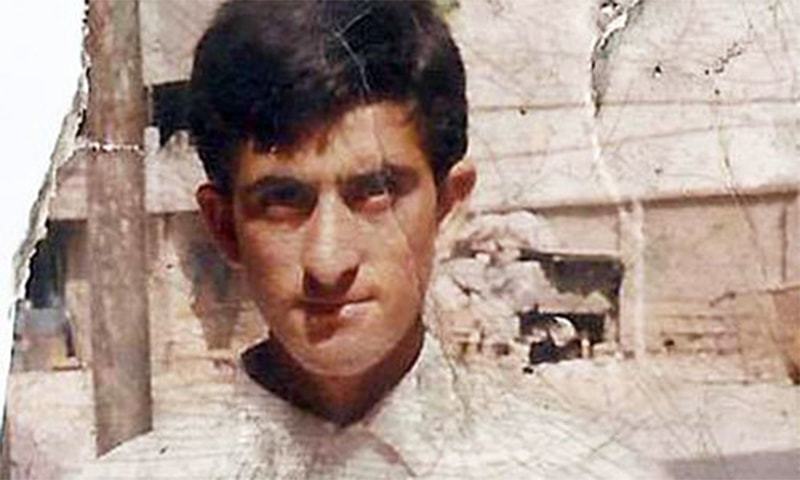
Shafqat Hussain’s case took on international attention when the question of his age was raised. This has caused some confusion in Pakistan where people have posted pictures of the accused with a beard asking how this can be a teenager. This misses the point completely which is not that he is a teenager now but that he was a teenager over a decade ago when he was convicted for his alleged crime. Global human rights groups including those that have previously been highly favoured for speaking against drones have demanded the execution be stopped and termed his trial as “farce”. In Pakistan, that farce continues today and the state appears to be completely dysfunctional in its handling of the case.
The refusal to properly investigate the accused’s age is an embarrassment for the state for multiple reasons. What at first appears as a lack of proper consideration of the facts in a death penalty case soon comes to look very much like a defiant refusal to investigate the facts as a show of power against Western powers. In reality, however, the issue is probably even more embarrassing which is that the state has realised it has no way of verifying the accused’s age due to a lack of proper state records. Rather than expose systemic failures in both the bureaucracy and judiciary, the state has decided to use the issue as a show of ‘sovereign strength’ not realising that it actually demonstrates several weaknesses.
These weaknesses were magnified again on Monday when another last minute intervention postponed the execution once again, surprising everyone. Reports reveal a time of mass confusion among the very people who are supposedly in control of the nation. At the time of this writing, it is still not clear who exactly ordered the stay of execution as everyone is denying it!
Samina Waqar, the president’s spokesperson, said the president had not issued any orders to postpone the hanging, but claimed that the orders came from Sindh Chief Minister…However, Waqar Mehdi, spokesperson for the Sindh CM, said although the EU delegation had met the CM, no orders for suspending the death penalty were issued by the CM…Supreme Court Registrar Tahir Shahbaz said the apex court had not issued any order to postpone the convict’s hanging.
The judiciary itself has received the most damage from this entire episode, and most of it self-inflicted. After coming under ridicule for scheduling a hearing for the accused four hours after his execution, Chief Justice Nasirul Mulk gave statements that seem to contradict the Court’s assertions in other matters and portray a Court that seems more like a bureaucracy indifferent towards whether or not justice is actually done.
The Supreme Court has repeatedly raised the issue of the Court’s primacy since being reinstated in 2009. These can be seen in the numerous instances of Suo Moto cases and the repeated invoking of basic structure doctrine. However, in the case of Shafqat Hussain, the Chief Justice talks as if the Court is mid-grade bureaucracy.
He said the verification of his age could only be re-evaluated by the relevant authorities. He also said that the apex court does not want to interfere with the work of “any institution”.
This left many wondering since when the apex court defers to “any institution”? The most shocking, though, was the Chief Justice’s statement that seemed to suggest an impatience to have the case disposed of quickly whether or not justice was done.
“Sorry, the petition is dismissed. This matter has to come to an end someday,” AFP quoted Mulk as saying.
For a Court that is known to drag out cases for decades without any resolution, it is curious that expediency is suddenly in vogue.
All of the mystery and confusion around Shafqat Hussain case suggests that there is something else at work behind the scenes. The urgency with which certain quarters want the case disposed of and the Court’s sudden interest in institutional deference and expediency seem mysterious when one thinks about the issue in case as one of the accused’s age, but there is another element that is receiving much less attention that may provide a key: Whatever his age, Shafqat Hussain was convicted by an Anti-Terrorism Court based on a confession that was allegedly given after being tortured. If there is any truth to these allegations, it is a tangled web that the state certainly would not unraveled because it would call into question other cases and the entire criminal justice system. Could it be that the decision has been made that it is better that Shafqat be hanged than the entire system be brought to book?
Whatever the facts may be, it looks like we will never know. This is bad news for Shafqat Hussain, but it may actually be worse news for the state. Death penalty is the one punishment that can never be undone. If Shafqat Hussain hangs, and it is later revealed that he was a teenager who was tortured into confession, the entire system may be found guilty along side him.
![]()






[…] If Shafqat Hussain hangs, whole system may be found guilty along side him (By Muhammad Adeel) […]